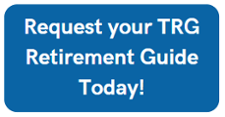Self-Canceling Installment Note (SCIN)
What Is a Self-Canceling Installment Note (SCIN)?
Form of Installment Debt
A self-canceling installment note (SCIN) is a form of installment debt. When you use a SCIN to finance the sale of your business interest, the buyer promises to make payments of portions of the sale price to you (the installments) for a specified period of time. If you die before receiving all of your payments, the note is automatically canceled. Unlike an "ordinary" installment agreement, your estate cannot collect any balance due to you from the buyer. Self-canceling installment notes are also known as death-terminating installment sales.
Tip: You should include the cancellation terms in both the debt instrument and your sales contract to avoid any potential future problems.
Combines Features of Private Annuity and Installment Sale
The SCIN combines features of the private annuity and "ordinary" installment sale financing methods. Like a private annuity, the SCIN payments stop at the death of the seller. The SCIN has some of the tax advantages found with an installment sale.
Features and Requirements of a SCIN
Seller Must Receive a Risk Premium
The buyer must pay a risk premium to the seller. This is in consideration for the cancellation of the note at the seller's death and compensates the seller for the risk of not receiving the full price. The risk premium can be in the form of an increase in the sale price over the fair market value (called a SCIN-PRIN), or an increase in the interest rate over the standard applicable federal rate (AFR) (called a SCIN-INT), or even a combination of the two. The base interest rate used must equal or exceed the lowest appropriate term applicable federal rate (AFR) with semiannual compounding for the month (or prior two months) in which the transaction occurs. There are different AFR rules for short-term, mid-term, and long-term notes, so the AFR rate used will depend on the term of the note.
Example(s): You sell your business in June and finance the transaction with a SCIN for a term of six years. You refer to the applicable federal rate (AFR) table and find the following midterm rates:
|
April |
May |
June |
|
6.78% |
6.44% |
7.02% |
Example(s): Under the rules for installment sales (which apply to SCINs), the appropriate minimum allowable interest rate is 6.44 percent. If you are using an interest risk premium (as opposed to using a higher sale price), you should increase your base rate of 6.44 percent (based on the AFR) by the risk premium rate.
Tip: Document your risk premium calculations and base sale price or interest rate in the note evidencing the installment debt.
Tip: The AFR changes monthly and is published by the IRS. The rates can be found in many widely available financial publications, including The Wall Street Journal.
Tip: There are other very specific rules concerning interest rates that apply to family transfers of land. Please consult additional resources.
Risk Premium Tied to Fair Market Value or Market Interest Rate
Risk premium is measured relative to the fair market value (FMV) of the property or the market rate of interest. A professional appraisal should be conducted to establish the FMV of your business interest. As part of your debt instrument, include the base rate and premium calculation for any interest rate premium you are using for your SCIN.
Tip: Consult a professional tax advisor for assistance with risk premium calculations.
Note May Be Secured Without Affecting Taxation
Like an installment sale, a SCIN may be secured by a note or collateral. If the buyer stops making payments before the terms of the note are fulfilled, you can take title to the collateral. This benefit is not available with a private annuity.
Example(s): You sell your business to your brother-in-law, Bob, and finance the sale with a SCIN secured by a building he owns. Under the terms of the SCIN, Bob agrees to pay you in installments until either the entire price is paid (roughly six years in your particular transaction) or you die, whichever occurs first. Three years into the payment agreement, Bob skips town and stops paying you. Under the terms of the agreement, you may take action to foreclose on the building used as collateral.
Caution: You may want to avoid using assets or shares of the business itself as collateral. The IRS may conclude that you have retained control of your interest, and there could be adverse tax consequences as a result.
Removes the Value of Your Business Interest from Your Estate
When you accept a SCIN in exchange for your business interest, the value of your interest is removed from your estate. If you die before receiving full payment for your interest, the unpaid balance of the debt is not included in the gross value of your estate, "assuming the installment sale has been made at arm's length for adequate and full consideration."
Maximum Payment Term Must Be Less than Your Life Expectancy
The payment term used in the terms of the SCIN must be shorter than your actuarial life expectancy. In other words, you cannot establish an installment period that is equal to or greater than your life expectancy, increasing the chance that your family buyer will be able to get your business for less than fair market value. The IRS publishes a table of life expectancies that you may consult to determine as appropriate payment terms.
Example(s): You are selling your business interest to your son using a SCIN. At the time of the sale, your life expectancy is 15 years according to the IRS life expectancy table. You and your son agree on 10 years as the term for the SCIN. The term of the note is shorter than your actuarial life expectancy, so you are in compliance with this requirement.
Tip: Different rules apply for terminal illness, and special actuarial factors may be allowed. Please consult a tax advisor.
You Can Spread Your Gain on the Sale over the SCIN Payment Period
When you use a SCIN and your business is a cash basis taxpayer, you can spread any gain on the sale of your business over the term of the SCIN. This allows you to avoid a large tax liability in the year of the sale.
Caution: If your family buyer resells the business interest within two years, you lose the right to spread your gain on the sale. Rather, you will immediately owe income tax on the full amount of your gain. This rule doesn't apply when your buyer is an unrelated party.
Caution: If you die before receiving all of your installment payments, tax may be owed on the unrecognized gain. The courts have not been in agreement as to whether the taxable event is reportable on your final income tax return or your estate's income tax return. Nevertheless, there is a possible income tax or estate tax liability.
SCIN May Be Used to Shift Gain from Business Appreciation to Family Member in Lower Tax Bracket
Selling your business interest to a family member using a SCIN may allow you to reduce your overall family tax liability. This can be valuable when the business is expected to grow. When you sell your interest, you compute your gain, which is subject to taxation. Additional appreciation in the business after the sale belongs to the buyer and is taxable at the buyer's tax rate. If you expect your business to grow, you may want to shift ownership during your lifetime to a family member in a lower tax bracket. If you hold the interest until your death, it will be part of your gross estate, subject to taxation at the higher estate tax levels.
Interest Portion of Payment Is Deductible for the Buyer
When you use a SCIN to finance the sale of your business, the buyer is allowed an income tax deduction for the interest portion of the payments.
Caution: The interest deduction, however, may be subject to certain restrictions including investment interest deduction limitations. Consult a tax advisor.
Interest Portion of Payment Is Taxable to the Seller
The interest portion of the payments you receive as the seller is taxable as ordinary income.


